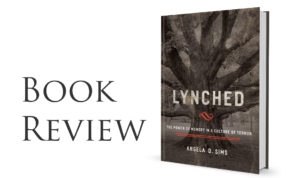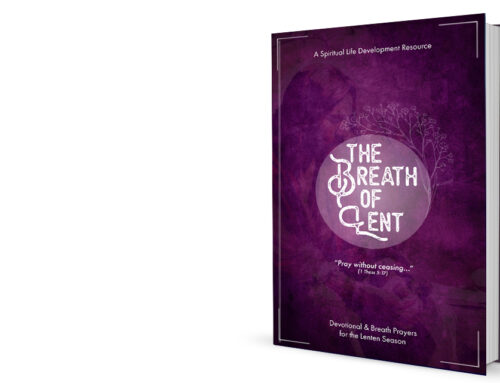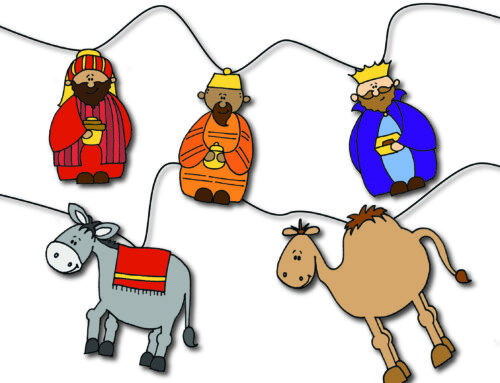
Lynched: The Power of Memory in a Culture of Terror
Written by Angela D. Sims
In confronting the racial crisis these days due to the death of George Floyd by police brutality, I want to share my thoughts on the issue of racism, America’s original sin, based on my review of Angela D. Sims’ book, Lynched: The Power of Memory in a Culture of Terror, as a personal act of repentance and resistance towards that unresolved injustice in America. Because of my heartfelt interest in social justice, especially the issue of racism, it was a timely opportunity for me to learn about Sims’ book, which helped me to engage a critical view on the intricate subject of lynching and the culture of lynching, which still remains an ongoing and urgent socio-political issue in an era of the new-lynching culture.
Sims’ book, Lynched: The Power of Memory in a Culture of Terror, is written based on the author’s oral history project called “Remembering Lynching: Strategies of Resistance and Vision of Justice,” which has preserved and collected a significant number of narratives of African American survivors and witnesses of the lynching era, indicating a time of fear and violence “when domestic terror was an almost unquestioned practice” from the late 19th century to the early 20th century in America.
The main purpose of Sims’ book is to provide “the ethical and theological analysis of lynching and culture of lynching in the United States of America” based on the collection of lynching narratives of African American elders. Sims emphasizes that the lynching narratives of African American elders are primary sources for reconstructing a specific point in the past for a particular community in America beyond the narrators’ remembrance and the relevance of their accounts. As the only non-Christian participant for Sims’ project, Martin Collins’ comment alerts us to envision how the socio-political circumstance of the South in the lynching era looked like. He indicates that “no black people much in the South knew anything about justice – there was no justice – not for a black person.”
Sims never underestimates to acknowledge the ongoing fact that a neo-lynching culture is a current reality in the United States of America. Sims encourages the readers to engage African American elders’ voices as “primary sources for moral decision making” for future generations. It is crucial to recognize that those who participated in Sims’ project have acknowledged Jesus’s crucifixion, which manifested as God’s cosmic redemptive plan for saving all humanity as the essential element for their understanding of salvation.
Considering the intricate and complex issue of silence in the historical context of the inseparable connection between white supremacy and lynching and a culture of lynching, it is provoking to see how some of African American elders who interviewed with Sims identifies silence as “a strategy to deter unwanted attention” for keeping them alive. Sims claims that the act of lynching itself is “a form of domestic terror that continues to function symbolically as a mechanism by which to control human behavior.” Sims describes that the lynching narratives of African American elders having been “silenced for decades necessitates that we acknowledge that a culture of fear is still prevalent in the United States of America.” “People are afraid to talk about those things even in the twenty-first century…There are still consequences that could follow your words.” No matter what a culture of fear still exists, it is critical to identify the paradoxical difference between “the silence of oppressors” and “the silence of the oppressed.”[1]
Sims characterizes the critical reasons for establishing the project for collecting the narratives of African American elders concerning the issue of lynching and a culture of lynching based on the following conviction: “The existential reality of black life in the United States of America becomes a necessary starting point from which to (a) share lessons gleaned from participants’ experiences, (b) articulate some of their concerns about how to navigate life in a neo-lynching culture, and (c) offer hope to young persons who are in the process of becoming their authentic selves. From lessons, concerns, and hopes influenced by immersion in their memories, participants exemplify ways in which they embody an ethic of resilient resistance.”
Sims proposes the notion of “an ethic of resilient resistance” based on the lynching narratives of African American elders. Sims points out that “from these narratives, I gain insight about an ethic of resilient resistance that is rooted in a reality that transcends human logic. Resilient resistance refers to an ability to name and respond to evil in a manner that challenges practices that are neither just nor fair. It is an ethic for many oral history participants that is informed by faith.” Sims’ proposal for an ethic of resilient resistance is identified as “a capacity to both respond in a manner that conveys a determination to fashion a life of grace-filled possibilities and confront simultaneously evil personified in policies and practice.”
As the outcome of her timely project, Sims accentuates four words of wisdom for the future generations of the black community that emerged from the rich heritage of the oral histories at the heart of this ethic of resilient resistance: 1) “aim high,” 2) “keep the faith,” 3) “learn all you can,” and 4) “learn to forgive.” Surely, we can all relate to and benefit from these lessons.
First, on the wise saying of “aim high,” Sims provides the background that includes full awareness of white-supremacist ideology, which exists as a threat irrespective of socioeconomic status. The notion of “aim high” bears “a determination to live each day with a conviction not to allow anyone to deter them from accomplishing their individual and collective goal.”
Second, the wise theological insight, “keeping the faith” is cultivated from this dialectic reflection on the correlation between lynching and faith in God. African American elders emphasize that “lynching ‘didn’t stop [them] from believing in God.” We observe their unique way of contextualizing their life threatened experience of lynching in this theological implication: African American elders “make a distinction between the oppressors’ object of worship and their own faith in the true and living God who sets captives free.” These elders want to stress that “faith in God alone does not guarantee a reciprocal response of repentance from perpetrators of evil that can lead to an eradication of systems predicated on abuse. It is “an attitude of trust,” which demands a type of dexterity to read situations and people that enables persons of faith to respond in a manner that speaks to the collective situation of black life in the United States.”
Third, this particular saying of wisdom, “learn all you can,” is identified with the notion that learning is essential in all aspects of life. Many of us can sympathize with this particular elder’s advice that “if there is any future for black folks in America, it’s through education…Get as much as you can. Study history, learn as much as you can, and by all means, don’t forget to pray.” In recognizing the importance of having a balanced understanding of the fact that “education is never a solo endeavor,” African American elders affirm to their future generations that “we need each other. And that’s our hope, laboring together as a community,…overcoming it by the grace of God.”
Fourth, Sims finally leads us to reach the most delicate and intricate challenging task for the future generations of the black community. The final word from African American elders is to “learn to forgive.” It is clarified by the elders that this ongoing and intentional decision to forgive should not be confused with a word, “forgetting.” Sims introduces Clark Fletcher, who has vivid memories about two lynchings in her early years of life in the St. Joseph, Missouri area. As Fletcher’s narrative makes clear, the act of forgiving should not be misinterpreted as “making excuses for people.” The critical matter for Flecher is that future generations of African Americans should “be able to envision forgiveness as a process through which an individual exercises agency to come to terms with circumstances and determines what steps are essential to being a person of integrity.” In her case, Fletcher describes the notion of forgiveness in “the sense of being at peace.” She indicates that “[I] learned to forgive so that I don’t have to carry around anger or disappointment or what have you. That’s not a part of the baggage that I carry around. When I go to sleep at night, I’m not worrying about what someone has done to me or what I’ve done to somebody.” African American elders underscore that an ethic of forgiveness requires “an ongoing evaluation of where and how energy is expended.”
I believe that one of the greatest blessings that God has given to this world is racial diversity, as the Bible teaches that God created all human beings in His image as equally loving creatures in His eyes. Unfortunately, all of the racial tension that the media has reported on, it is evident that many people in this world do not see racial diversity as a blessing. It was a painful and astonishingly shocking historical fact that not too far from today in a time that lynching as a domestic terror, was an “accepted practice” in America beyond some types of segregated racial policies until the rising of the civil rights movement in the 1950s and 1960s. It is a disconsolate historical reality that at a certain point in time that lynching was a part of the eclipsed and unresolved dark side of American socio-racial history.
Second, as a Korean immigrant who has been living in this new homeland for the past 30 years, I have been carrying a keen interest to understand the American history, especially the history of the ethnic community as a stepping stone for enriching my self-identity in a larger context of socio-cultural and historical roots of the United States of America. The following self-reflective question, “what does it mean by living in America as an ethnic minority?” is an ongoing inquiry for seeking my identity and how I am to live with others in this multi-racial society. Having said this, I have admired the history of African Americans and is a subject I am willing to know better. I have to admit that reading this book challenged me to debunk the shallowness of my knowledge or a priori understanding about the hidden or silent truth of “racism as a national sin” based on the historical tragedy of lynching and a culture of lynching.
Sims’ book provides a valuable opportunity to gain self-awakening lessons for me in terms of enriching my understanding of the various facets of America’s socio-historical issues, which is one of the never-fully unveiled and discussed subjects for the African American community. It should be credited that Sims’ book preserves its own significant virtue, which is demonstrated through her well-constructed project based on oral research methodology on the subject of lynching in American history.
Third, as the title of the book indicates, the theme for Sims’ book led me to reflect Korean people’s historical and corporate memories of suffering as a nation which is rooted based on over 35 years (1910-1945)’ exploited experience of colonization by Japan. The era of this national catastrophic tragedy was the darkest period in the modern history of Korea, which could be compared with the historical memories of the Jewish Holocaust. During this brutal and darkest colonial period, the Korean people as individual and communities were demoralized and exploited by the Japanese colonial regime. Unfortunately, to this day, the Japanese government does not admit to the fullest extent what they did to the Korean people during those years, including the issue of Japanese military sexual slavery, and the Japanese government still has not made an official apology for their volatile and horrible terror towards Korean people. There is an entire generation of Korean elders who still vividly remembers how they were treated, including the horrific memories of many hundreds and thousands of victims of Japanese military slaves to sex who were mostly teenage girls. I see the catastrophic experimental similarities and connection between the lynching of the past African Americans and the brutal and terrifying colonization experiences of the past Korean generation under the Japanese regime.
Fourth, the theological motive of Sims’ oral history project encouraged me to revisit three particular books, which helped me to enhance and deepen my theological consciousness and worldview. The list of three books is this: Jurgen Moltmann’s The Crucified God: The Cross of Christ as the Foundation and Criticism of Christian Theology, Andrew Sung Park’s The Wounded Heart of God: The Asian Concept of Han and the Christian Doctrine of Sin, and James H. Cone’s The Cross and the Lynching Tree.
In my opinion, these books based on each authors’ unique life experiences and theological agenda contain vital and inspiring messages in terms of how Christian theological and hermeneutical understanding of human suffering in light of soteriological manifestation of the Crucifixion of Christ bring hopeful, reconciling and redemptive messages to the broken world. In particular, Sims’ book can be closely compared with James Cone’s The Cross and the Lynching Tree.[2] If Cone focuses to ponder the theological meaning to “what happened on ‘the lynching tree,'” Sims, in her book, searches for theological truth of how African Americans have carried the painful, horrific and yet unresolved memories of lynching and a culture of lynching not only individually but also corporately throughout history.
Sims indicates that through this project, she wanted to “examine African American lynching narratives and identify similarities between justifications for preemptive strikes and a culture of lynching.” However, it appears to me that her attempt was not fully accomplished. Despite this misstep, Sims’s book should be credited as an enduring and well researched literary work and bring our attention to confront the unresolved and critical theological and historical importance of the lynching and a culture of lynching in the specific period of American history.
As a final thought, upon completing this book, the two symbolic words of cry acutely echoed to my heart: First, “I am thirsty” from the Cross, where the abandoned son of God was hung. Second, “I can’t breathe” from a street where one black man hopelessly was arrested and killed. They beg for a response to this unavoidable query: “Where were you when they were crying out to help amid their suffering?”
Click here to purchase your own copy of the book
[1] See Katie Grimes, Book review on Angela D. Sims, Lynched: The Power of Memory in a Culture of Terror (Waco, TX: Baylor University Press, 2016). Horizons: The Journal of the College Theology Society (Vol. 44, Issue 2, 2017), 498-500.
[2] James Cone, The Cross and the Lynching Tree (Maryknoll, NY: Orbis Books, 2011, 2017, Ninth printing).
written by Major Young Sung Kim, Territorial Ambassador for Holiness, SLD, USA East




